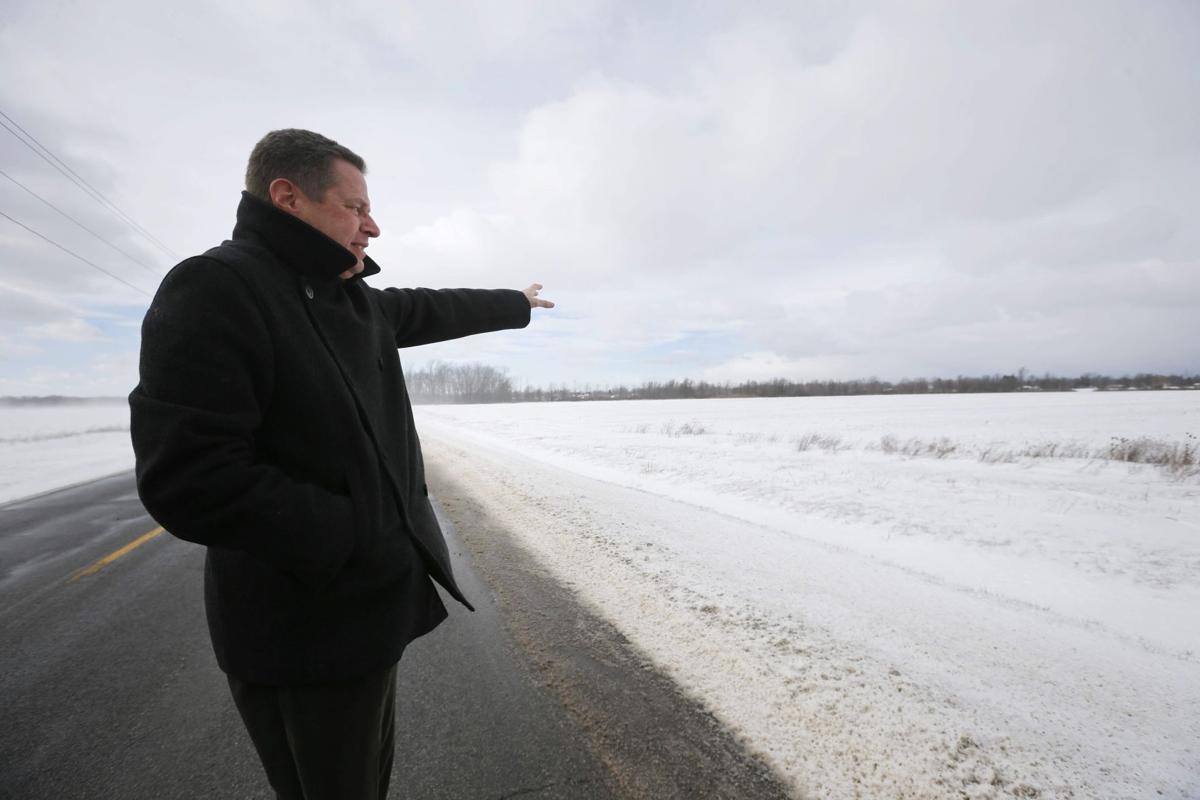
The long-delayed Northern Access natural gas pipeline may have received its final approval Tuesday – from three federal judges in New York City.
That panel of the U.S. Second Circuit Court of Appeals ruled unanimously against the state Department of Environmental Conservation and the Sierra Club in their efforts to block the project, even though the judges wrote that National Fuel “flimflammed” the DEC in a dispute over legal deadlines.
It’s the latest – and, unless the DEC and the Sierra Club appeal to the Supreme Court, perhaps the last – courtroom victory for National Fuel and its Empire Pipeline subsidiary.
While the DEC said it was “disappointed” by the ruling and was considering its options, National Fuel said it was “very pleased.”
“Today’s ruling certainly clears the most significant hurdle facing the continued development of the Northern Access project,” spokeswoman Karen Merkel said.
“We’re going to keep fighting this,” said Diana Strablow, vice chair of the Sierra’ Club’s Niagara Group.
The company’s $500 million pipeline would carry natural gas from the fracking fields of McKean County, Pa., through Allegany, Cattaraugus and Erie counties, to a connection to a Canadian pipeline beneath the Niagara River at Chippawa, Ont.
The package also includes some additions to National Fuel’s system in Niagara County: about 2 miles of pipelines; a gas dewatering station on Liberty Drive in Wheatfield; and a pair of 22,000-horsepower compressors on Killian Road in Pendleton.
But the main project is the 96.5-mile pipeline from Pennsylvania to the Niagara River. It’s a 24-inch-wide pipeline, to be laid in a 75-foot-wide right of way. New York’s highest court has ruled National Fuel has eminent domain power to seize land from property owners along the route.

While Pennsylvania authorities quickly granted National Fuel all the permits it needed, the DEC refused to issue a water quality permit allowing the pipeline to cross 192 streams along its route.
The federal Clean Water Act gave the DEC a one-year deadline to respond to the water quality permit request, which National Fuel submitted on March 2, 2016.
However, in January 2017, the DEC and the company made an agreement to delay the deadline. According to Tuesday’s ruling, the DEC had twice asked National Fuel for more information and the DEC decided it was unable to fit legally mandated public comment periods within the one-year window after receiving the additional information.
The sides pushed back the response deadline to April 8, 2017, and on April 7, 2017, the DEC rejected the permit.
In the meantime, the Federal Energy Regulatory Commission approved a permit for the pipeline on Feb. 3, 2017, as long as the company could show it had all the regulatory approvals it needed, or that the DEC had waived them.
In December 2017, National Fuel’s lawyers asserted to FERC that the DEC had waived its regulatory authority by missing the one-year deadline, even though the company had agreed to the extension. FERC decided that the federal Clean Water Act doesn’t allow deadline extensions, and gave the pipeline its final approval.
“The DEC was, after all, flimflammed by National Fuel which made a commitment, later thought better of it, and walked away,” the Second Circuit panel wrote.
But it decided that FERC couldn’t have been stopped from reaching its conclusion on its own “or at the behest of a third party,” without having the company make the argument that the DEC had waived its authority over the project.
The DEC asked FERC to reconsider, FERC refused, and the DEC went to court.
Tuesday, the three Second Circuit judges agreed with FERC that the Clean Water Act doesn’t allow private extensions of its deadlines.
A DEC statement said it rejected the water quality permit “because the proposed project would fail to meet state quality standards, and we will continue to vigorously defend our authority to protect New York State’s water quality resources. DEC is reviewing the court’s ruling and assessing all legal options to prevent this project from impacting New York’s environmental resources.”
“The environmental degradation it would cause to Western New York streams has never been addressed,” Strablow of the Sierra Club said.
“The company has committed to meet or exceed all safety codes and environmental protective measures in the construction and operation of this project,” Merkel of National Fuel said. “With these measures in place, the project will not put at risk or endanger any water resources or surrounding environments.”
By FERC order, construction is supposed to be complete by February 2022. Last fall, National Fuel asked to extend the deadline to December 2024 because of the litigation, but FERC refused. The commission did say National Fuel could ask again.
Strablow said that request could give pipeline foes an opening.
Published by The Buffalo News




